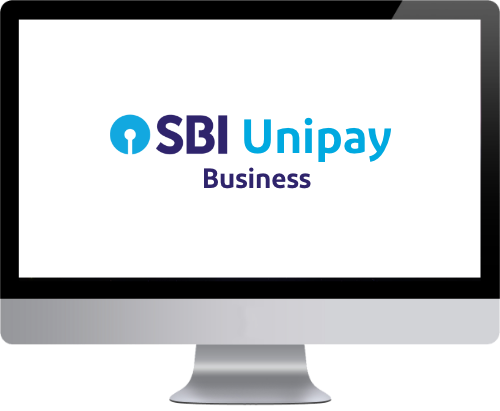'Phishing' is a common form of Internet
piracy. It is deployed to steal confidential financial
information like bank account numbers, net banking passwords,
credit card numbers, personal identity details etc. Later the
perpetrators may use the information for siphoning money from
the victim's account or run up bills on victim's credit cards.
In the worst case, one could also become the victim of identity
theft. A few customers of some other Indian banks have been
affected by the attempt of phishing in early 2006.
The following section details the
methodology of a 'Phishing' attack, do's and don'ts in sharing
of confidential information and the corrective action to be
taken by a victim of a phishing attack.
 Phishing attacks use both
social engineering and technical subterfuge to steal customers'
personal identity data and financial account credentials.
Phishing attacks use both
social engineering and technical subterfuge to steal customers'
personal identity data and financial account credentials.
 Internet banking user receives
a fraudulent e-mail seemingly from a legitimate Internet
address.
Internet banking user receives
a fraudulent e-mail seemingly from a legitimate Internet
address.
 The email invites the user to
click on a hyperlink provided in the mail.
The email invites the user to
click on a hyperlink provided in the mail.
 User clicks the hyperlink and
is redirected to a fake web site that looks similar to the
genuine Internet banking site.
User clicks the hyperlink and
is redirected to a fake web site that looks similar to the
genuine Internet banking site.
 Usually the email will either
promise a reward on compliance or warn of an impending penalty
on non-compliance.
Usually the email will either
promise a reward on compliance or warn of an impending penalty
on non-compliance.
 User is asked to provide
confidential information, such as login/profile or transaction
passwords and bank account numbers etc.
User is asked to provide
confidential information, such as login/profile or transaction
passwords and bank account numbers etc.
 User provides the details in
good faith and clicks on 'submit' button.
User provides the details in
good faith and clicks on 'submit' button.
 User is displayed an error
page.
User is displayed an error
page.
 User has fallen prey to a
phishing attack.
User has fallen prey to a
phishing attack.
 Do not click on any link,
which has come through e-mail from an unknown source. It may
contain malicious code or could be a 'Phishing attack'.
Do not click on any link,
which has come through e-mail from an unknown source. It may
contain malicious code or could be a 'Phishing attack'.
 Do not provide any information
on a page which might have come up as a pop-up window.
Do not provide any information
on a page which might have come up as a pop-up window.
 Never provide your password
over the phone or in response to an unsolicited request over
e-mail.
Never provide your password
over the phone or in response to an unsolicited request over
e-mail.
 Always remember that
information like password, PIN, TIN, etc. are strictly
confidential and are not known even to employees/service
personnel of the Bank. You should therefore, never divulge such
information even if asked for.
Always remember that
information like password, PIN, TIN, etc. are strictly
confidential and are not known even to employees/service
personnel of the Bank. You should therefore, never divulge such
information even if asked for.
 Always logon to a site by
typing the proper URL in the address bar.
Always logon to a site by
typing the proper URL in the address bar.
 Before providing your user id
and password please ensure that the URL of the login page
starts with the text 'https://' and is not 'http://'. The 's'
stands for 'secured' and indicates that the Web page uses
encryption.
Before providing your user id
and password please ensure that the URL of the login page
starts with the text 'https://' and is not 'http://'. The 's'
stands for 'secured' and indicates that the Web page uses
encryption.
 Always look for the lock sign
() at the right bottom of the browser and the VeriSign
certificate.
Always look for the lock sign
() at the right bottom of the browser and the VeriSign
certificate.
 Provide your personal details
over phone/Internet only if you have initiated a call or
session and the counterpart has been duly authenticated by you.
Provide your personal details
over phone/Internet only if you have initiated a call or
session and the counterpart has been duly authenticated by you.
 Please remember that the bank
would never ask you to verify your account information through
an e-mail.
Please remember that the bank
would never ask you to verify your account information through
an e-mail.
If you feel that you have been phished
or you have provided your personal information at a place you
should not have, please carry out the following as a damage
mitigation measures immediately:
 Change your
login/profile/transaction password immediately.
Change your
login/profile/transaction password immediately.
 Report the incident to the
bank.
Report the incident to the
bank.
 Check your account statement
and ensure that it is correct in every respect.
Check your account statement
and ensure that it is correct in every respect.
 Report any erroneous
entries/transactions to the bank.
Report any erroneous
entries/transactions to the bank.
 Use the other compensatory
controls provided by the bank like adding trusted third parties
to zero, enabling high security, etc. to minimize the risk.
Use the other compensatory
controls provided by the bank like adding trusted third parties
to zero, enabling high security, etc. to minimize the risk.


































